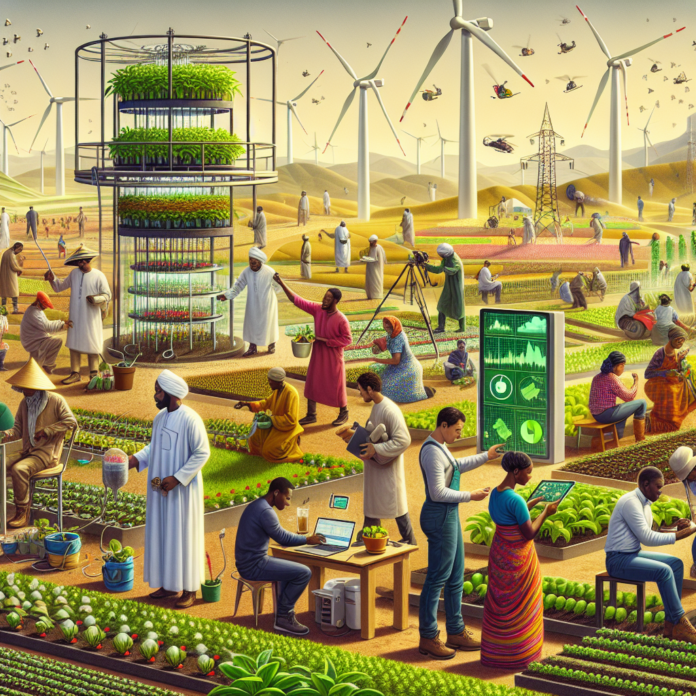2025 Climate Predictions for Kwara Farmers
Advising on Optimal Agricultural Practices
2025 Climate Predictions: Advisory for Kwara Farmers on Optimal Agricultural Practices
Voice of Nigeria reports that as climate patterns continue to evolve, farmers in Kwara State are urged to adopt best agricultural practices to mitigate the impacts of potential climate changes anticipated for 2025. Experts emphasize the importance of proactive measures to enhance resilience against unpredictable weather conditions.
Climate predictions indicate an increase in temperature and changes in rainfall patterns, which could significantly affect crop yields and farming activities. In light of these forecasts, agricultural specialists recommend that farmers diversify their crops, integrate drought-resistant varieties, and employ sustainable farming techniques to improve soil health and water retention.
Recommended Agricultural Practices
1. **Crop Diversification:** Farmers are encouraged to plant a variety of crops to reduce risk. This approach not only enhances food security but also improves soil fertility and resilience against pests and diseases.
2. **Soil Management:** Implementing soil conservation techniques such as cover cropping, mulching, and reduced tillage can help maintain soil structure and fertility while preventing erosion.
3. **Water Conservation:** The adoption of efficient irrigation methods, such as drip irrigation, can significantly reduce water usage while ensuring that crops receive adequate hydration, especially during dry spells.
4. **Agroforestry:** Integrating trees into farming systems can provide shade, reduce evaporation, and improve biodiversity, which are all vital in adapting to changing climatic conditions.
5. **Education and Training:** Ongoing education and training programs for farmers on the latest agricultural technologies and practices are essential. Knowledge sharing can empower farmers to make informed decisions and adopt innovative solutions to climate challenges.
By implementing these practices, farmers in Kwara can better prepare for the anticipated climate changes and contribute to sustainable agricultural development in the region. Collaborative efforts among government agencies, agricultural organizations, and local communities will be crucial in supporting farmers through this transition.


